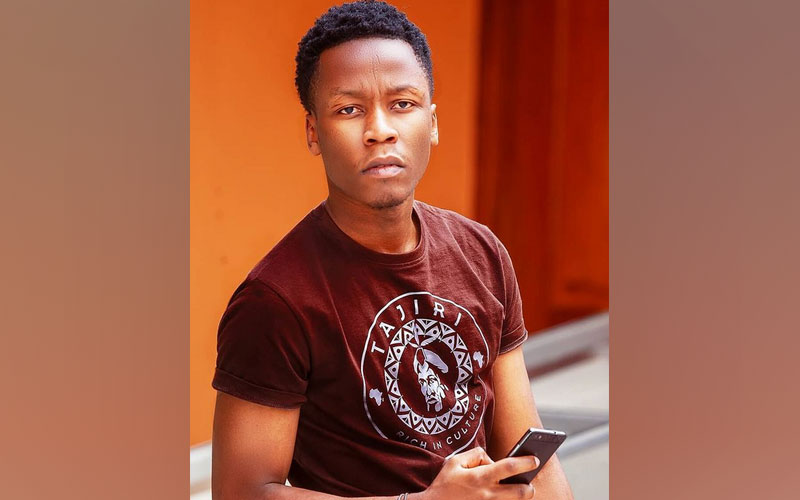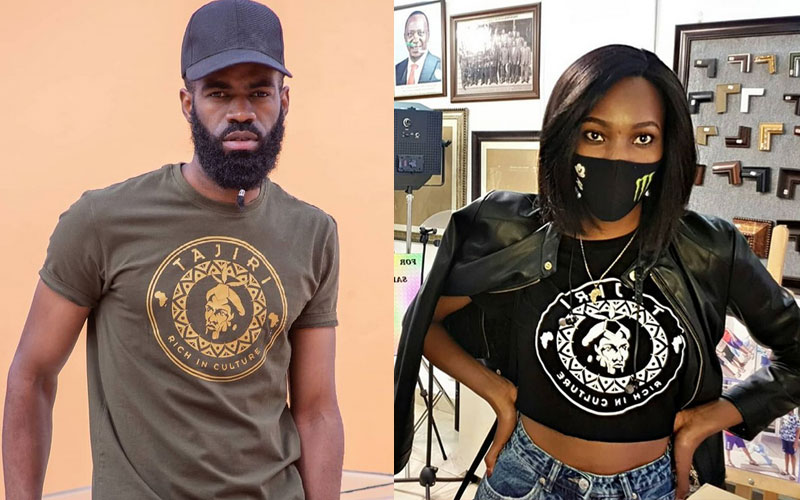
Ferdnand Muganda, a communications graduate is the brain behind Tajiri, a luxury brand currently producing t-shirts. He shares his experiences in the t-shirt branding business, challenges, opportunities, youth unemployment and more.
What’s the inspiration behind the Tajiri brand?
Mansa Musa, the tenth Mansa of the Mali Empire who’s considered one of the richest people to ever live. He was so wealthy that at one point, he was going on a pilgrimage to Mecca and when he made a stopover in Egypt, he caused an economic inflation. He inspired the name Tajiri.
What makes your business stand out from the rest?
In a crowded industry, what makes us different is our story. Our product is based on African culture and history-we're selling a story.
READ ALSO: Denri, the Kenyan bag designer taking on international brands
Why t-shirts?
We started with t-shirts because they are not capital intensive. But we’re also venturing into making poker cards and chessboards. I play poker and I've never come across Afro-themed cards. I saw a gap and created a niche.
How much capital does one need to start a t-shirt branding business?
We spent around Sh4,000 trying to find the right materials and coming up with the first product but it didn’t work. So we invested another Sh2,000 and after getting the right product, that's when we invested a further Sh10,000.
What mistakes do entrepreneurs make while starting out?
Investing too much money too soon. In our case, many businesses similar to Tajiri print products and have an inventory but since we were initially short on cash, we worked with digital copies and mockups.

What are some of the challenges you’ve faced?
When we were starting off, a client ordered eleven t-shirts for his family. We printed them expecting to get a return on investment soon after delivery but he ghosted us. Another challenge is economies of scale- the more t-shirts we print, the lower the cost of production. But sometimes client place a single order and they want it immediately so we have to print a few, ballooning the cost of production. Also, navigating the taxes aspect of doing business in Kenya is complex.
READ ALSO: Kenyan entertainers taking the fashion industry by storm
Lessons learned?
Collaboration is power and your network is your net worth. To bring Tajiri to life, for instance, I partnered with a long-term friend, Mayuu Sanaa who’s also a member of Bendi Huru.
Would you advise the youth to get into entrepreneurship to curb unemployment?
Yes. But they need to know that entrepreneurship is challenging and needs resilience, tenacity and the ability to cope with disappointment. Do something you are passionate about and if you can balance employment and entrepreneurship, the better. The current generation of entrepreneurs have an upper hand as they don't have to own an actual shop or open a store. They can capitalize on digital marketing platforms like Whatsapp business and Facebook Shops.
Are you looking at getting celebrities to endorse your products?
Yes. Kamene Goro for instance has been supportive of our business. She chose to buy the T-shirt and hype it on social media at no fee. We need a lot of visibility and are willing to work with likeminded people.
Do you believe using social media influencers to market products translates into sales?
Let me use an example- If a popular influencer was to wear our product, many people wouldn’t buy it as they assume they have been paid to market it. Professional influencers might give your brand visibility but they are expensive.
That’s why international brands are trying to focus on nano-influencers. They are your everyday social media users, with anywhere from 100 to 10,000 followers. Having strategically placed nano-influencers is arguably more efficient.
READ ALSO: Hustle Gang- Fred Obachi Machoka's highs and lows ranching in arid Kajiado County
Do you agree with the assumption that Kenyan products are of a lower quality compared to international brands?
Sadly, yes. The creativity might be at par but we don’t have the mechanisms of executing and bringing that creativity to life yet. Our infrastructure is still developing and we don’t have advanced machinery and equipment needed for production. There are some t-shirts designs you currently can’t print in Kenya and have to instead send them to China.
What are your aspirations for Tajiri?
I want Tajiri to be the go-to luxury brand in Africa.
 The Standard Group Plc is a multi-media organization with investments in media
platforms spanning newspaper print
operations, television, radio broadcasting, digital and online services. The
Standard Group is recognized as a
leading multi-media house in Kenya with a key influence in matters of national and
international interest.
The Standard Group Plc is a multi-media organization with investments in media
platforms spanning newspaper print
operations, television, radio broadcasting, digital and online services. The
Standard Group is recognized as a
leading multi-media house in Kenya with a key influence in matters of national and
international interest.
